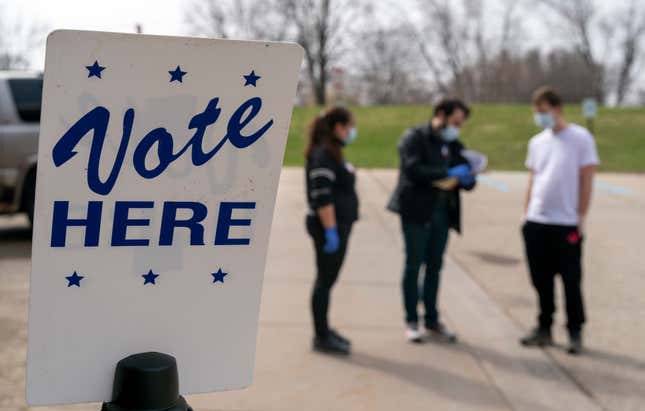
Despite over 40% of voters utilizing drop box ballots during the 2020 election and baseless accounts of voter fraud, the Wisconsin Supreme Court has voted to make absentee boxes illegal, according to the Hill. President Joe Biden had defeated former President Trump in the state by a thin 21,000 vote margin.
Granted, Trump won the state in 2016 within the same parameters; it didn’t stop him from making unfounded claims that ballot boxes were rigged in Biden’s favor. As the Hill points out, over 500 drop boxes were set up in more than 430 Wisconsin communities for the election in 2020.
Now, voters can only return absentee ballots in drop boxes in elected officials’ offices. The court left one remaining issue open concerning absentee ballots and if they could be dropped off at or mailed to local elections clerks’ offices by people other than the ones casting the votes.
The 4-3 ruling will certainly make Republicans happy with the August 9th state primaries only a month away. Specifically, when it comes to important election races to watch involving Republican U.S. Sen. Ron Johnson and Democratic Gov. Tony Evers.
Previously, a Wisconsin judge sided with the lawsuit brought forth by the conservative Wisconsin Institute for Law & Liberty outlawing the placement of ballot boxes from anywhere other than offices of local clerks.
“Ballot drop boxes appear nowhere in the detailed statutory system for absentee voting,” the justices wrote. “WEC’s authorization of ballot drop boxes was unlawful, and we therefore affirm the circuit court’s declarations and permanent injunction of WEC’s erroneous interpretations of law except to the extent its remedies required absentee voters to personally mail their ballots, an issue we do not decide at this time, and we decline to decide at this time whether the memos are also invalid as unpromulgated administrative rules.”
Justice Ann Walsh Bradley said in her dissenting opinion that this ruling creates another voting barrier for disabled and sick people without justification.
“Although it pays lip service to the import of the right to vote, the majority/lead opinion has the practical effect of making it more difficult to exercise it,” she wrote.

